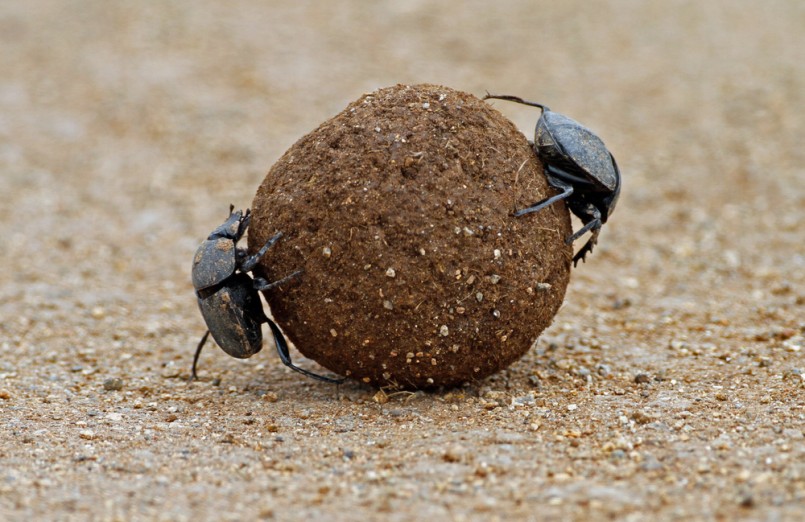Environment
This miracle drug will cause big problems for the environment

Image: Shutterstock/MartinMaritz
Cattle poop is piling up due to the widespread use of a miracle drug, ivermection. While the inventors of the drug were awarded last year with a Nobel Peace Prize for their work in creating this life-saving medication, current developments indicate a possible need for further testing, at least in regard to its use in livestock.
If it’s a miracle drug, what’s wrong with it?
Ivermectin, often prescribed under the trade names ivomec, stromectol and sklice, is considered a miracle drug by many, sparing humans the horrors of such afflictions as elephantiasis, scabies, head lice and river blindness. It’s also used in veterinary offices to treat animals for various types of parasites including roundworms and threadworms. An abundant use within livestock appears to be problematic, however, as not only does it kill the target parasitic invaders, but it also kills another insect—the dung beetle.
Easily ignored by most of us, the dung beetle exists in 5,000 different species and does its work on every continent of the earth except Antarctica. Its crucial role in the ecosystem is just as you’d suspect by its name—it eats poop. As manure is consumed by the dung beetle as a food source and also used to house and feed their young, they contribute to soil structure, nutrient recycling and forage growth in the process—all very much essential to biodiversity and life, even as distasteful as its role may seem. It does its dirty deeds in no small amount either. According to the American Institute of Biological Sciences, “dung beetles save the U.S. cattle industry an estimated $380 million annually every year through manure recycling.” Without them, studies suggest farmers would be left with an additional unwanted 312 pounds of dung per acre.
How do we fix this problem?
Some studies show hope that other types of insects, such as earthworms and springtails, help take up part of the slack with the additional dung if dung beetles decrease in number. However, a better option appears to be proposed in the form of tests that identify the effects of ivermection on a range of dung beetle species. According to a study co-authored by evolutionary biologist Wolf Blanckenhorn of University of Zurich, the testing would also provide government regulators and farmers with information they can use to assess when it’s necessary or okay to use ivermection on their livestock and subsequently recommend an accurate minimal appropriate dose to give them in order to prevent environmental disruption. In time, the tools being prepared for this endeavor are likely to become very easy to use, with instant results available. Until then? It may be best to continue our decrease of meat consumption and hold governments accountable for monitoring the levels of quite possibly unnecessary antibiotics used in the food we’re consuming.





0 comments